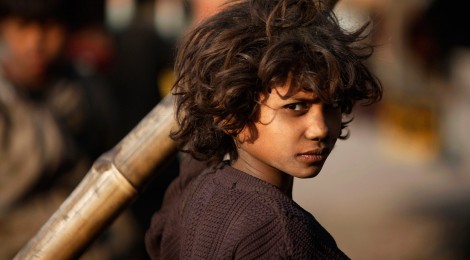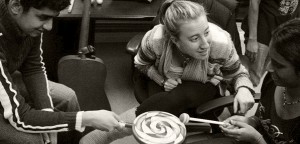
Cultural Barriers to Treating Autism: A South Asian Woman’s Story
Language barriers and cultural stigma associated with mental illness may hinder access to mental health services. The National Institute of Mental Health comments on the importance of culture specific services, noting that culturally sensitive mental health care must adapt to meet the needs of the current population.
But is the acceptance of multiculturalism and the increased sensitivity to cultural differences enough, or is there a need for culture specific health care services?
The Trauma and Mental Health Report spoke with Sally (name changed for anonymity), a mother of two children, aged 15 and 16, both diagnosed with autism. Sally decided to join the South Asian Autistic Awareness Centre (SAAAC) for support in raising her children. SAAAC supports South Asian families impacted by autism and the specific challenges this community faces.
Q: What are some of the struggles you’ve faced as the parent of children with autism?
A: My daughter didn’t sleep alone until she was 5. She would be in my arms for hours before she fell asleep. Meals were always hard. It takes three hours to feed her each meal. My son was a bit different. He would sleep, but was aggressive and would throw things when angry or emotional. I was always busy taking care of my kids: I would give one a bath, and then the other; feed one, and then the other; take one to the washroom, and then the other. It was tiring.
Q: Why did you choose to contact SAAAC?
A: Initially, I took my children to India for herbal treatment, and we were there for five years. My son was very violent and hyperactive, so I spoke to a friend who suggested we come back to Canada. She recommended Toronto because of the many services available to people from our cultural community. SAAAC was a good choice for our family because of the cultural similarities.
Q: Why do you think it’s important to have a center that focuses specifically on the South Asian community?
A: Because of the additional support that’s available based on experiences that are unique to certain groups. For example, some in my community believe that when you have a child with a disability, it’s because of your karma. This belief becomes the reason for our situation, and if we went to another organization, they would not understand.
There are also language barriers that prevent us from seeking help, and a culture specific center opens more doors. When I decided to place my son in a group home, SAAAC understood the cultural stigma of my decision, and because I had support from people within my community, it was easier to deal with.
Q: How did you make the decision to send your son to a group home?
A: My son was violent and would grab and hurt us. I would try and pull my daughter away, but she didn’t understand and was non-verbal. My son refused to wear clothes, he would not sleep at night, he would run away naked. So I would sleep on the floor by his bed. After seeing the fourth psychiatrist, my son was admitted to the hospital. He got medication and was a little calmer, but we never knew what to expect from him. I could not take care of both my kids alone. My husband was never around, and did not understand what we were going through.
Q: How do others in your community react to your decision to put your son in a group home?
A: The friends and family I have here support and accept my decision, but they are worried. On the other hand, my husband and his family do not support my decision at all. They think my son is not receiving proper care. I want to let others know about my situation. The people in my community hide disability, and do not speak openly about it.
Q: What additional barriers do you perceive in raising a child with autism as a South Asian woman?
A: As a South Asian woman, I did not have time to get to know my spouse, we had our kids right away, and did not understand each other. My husband did not do his part and I dealt with the difficulties on my own, because of the cultural expectation of hiding marital problems. When you get married, both individuals are responsible for the work. You need to help each other when you have children especially when both children have autism. You cannot do it alone. In my community, it is believed that the mother is responsible for everything at home and if anything goes wrong, the mother is always blamed. It is very difficult, I get blamed for the way my children are.
___________________________________
Western mental health services have become increasingly sensitive to cultural differences among clients. But culture specific services are still necessary since lived experience, stigma, and economic barriers to treatment can vary widely from culture to culture. For more information on culture specific services in your area, search “cultural health care or mental health care.” You can also see:
Here to Help: http://www.heretohelp.bc.ca/factsheet/cross-cultural-mental-health-and-substance-use
Vancouver Coastal Health: http://www.vch.ca/403/7676/?program_id=13624
Across Boundaries: http://www.acrossboundaries.ca
-Janany Jayanthikumar, Contributing Writer





